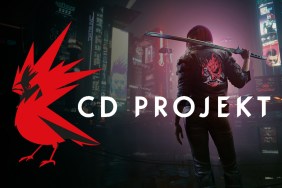Earlier today, CD Projekt RED held a call regarding the state of Cyberpunk 2077 and made some statements that seemed to subtly shift the blame to the Sony and Microsoft for allowing the game to pass certification despite the quality (or lack thereof) and insane amount of bugs present.
“I can only assume that [Sony and Microsoft] trusted that we’re going to fix things upon release, and that obviously did not come together exactly as we had planned,” CDPR’s Michał Nowakowski said in regards to a question about submitting the game through Sony and Microsoft certification. Likewise, speculation has filled the discussion around Cyberpunk 2077, with many gamers wondering how Sony and Microsoft even allowed the game on their storefronts given its current issues.
The not-so-secret secret lies in the crucial differences between QA done by the developer and console certification for the game to receive a release on the storefront. Game dev veteran Rami Ismail, formerly of Vlambeer, pointed out these differences in a broad Twitter thread that didn’t dive into specifics (thanks to NDAs), but gave an overview of why console certification is not there to QA games for developers.
OK FULL STOP ON THE DISCOURSE PLEASE
Just to explain: Sony and Microsoft are -not- responsible for the state of Cyberpunk 2077 on PS4 and Xbox. “Cert” isn’t something that ensures games are ‘good’ – it ensures games do not brick it or disable critical functionality.
— Rami Ismail (رامي) (@tha_rami) December 15, 2020
Essentially, console certification is looking for compatibility with the platform to ensure the game functions and interacts amicably with the console at the most basic level. Glitches and general playability of the game in question aside, Sony and Microsoft simply want to make sure that this application isn’t going to “brick [the consoles] or disable critical functionality.” They don’t exactly care that characters look like half-sentient potatoes and vehicles despawn the moment you turn away. That responsibility falls on the developer, and the decision to release a game despite QA almost assuredly reporting these issues is a management decision, plain and simple.
“Certification doesn’t mean that your game is free of graphical bugs, free of performance issues, free of glitches, or even that it’s functioning properly,” Ismail says. “Cert means the game should not mess up your console, or your ability to use your console, or break rules & trademarks.”
He goes on to explain waivers for certain certification criteria, where the developer/publisher can argue their case for why a thing may fail to meet the certification requirements or promise to fix those things. These requirements, however, do not touch on game quality, so long as those issues don’t impact critical console functionality. Ismail points out that consoles do not have a mystical stamp of quality—which should be obvious seeing terrible games like Life of Black Tiger make their way to the PlayStation Store.
The blame should not fall to Sony or Microsoft, regardless of whether it’s subtly pushed that way by CDPR or through the speculation of fans who wonder why Sony would even allow it to be published in the first place. It shouldn’t even fall to the overworked developers and QA teams who worked to find and fix these issues. The conclusion is that the responsibility for releasing Cyberpunk 2077 (or any game, really) in a shoddy state is strictly up those in leadership positions who opted to release the game despite numerous known issues.
This makes Nowakowski’s comments on the call quite confusing, because Sony and Microsoft wouldn’t have explicitly cared about the quality or performance of Cyberpunk 2077, at least as far as it pertained to console certification. For CDPR to try to casually pass this off feels like it distracts from the leadership issues at the developer, where they fall short of admitting that it was an internal problem of mismanaging the development and release.
In the same call with CD Projekt RED, it was revealed that the company had no special arrangements with Sony or Microsoft regarding Cyberpunk 2077 refunds, despite promising refunds to disappointed players. The whole situation has led to a huge degradation of trust in a company that built up a lot of goodwill with its past releases.








